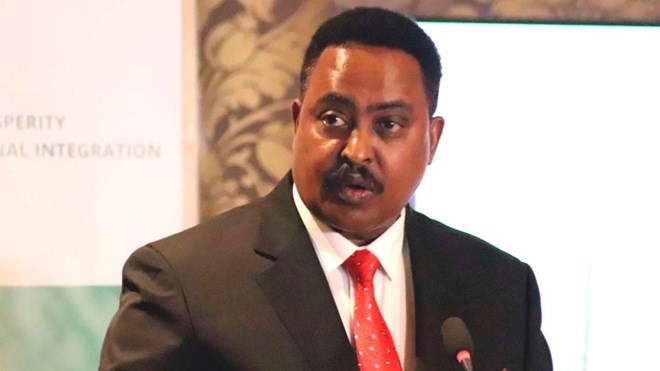
Thursday May 18, 2023

IGAD executive secretary Workneh Gebeyehu. FILE PHOTO | DIANA NGILA | NMG
Member countries of the regional African bloc, Inter-Governmental Authority for Development (Igad), have been urged by the body’s secretariat to harmonise diaspora transaction fees to increase inflows.
In a meeting with the member states’ central bank governors in Nairobi, Igad executive secretary Workneh Gebeyehu said despite the region having high volumes of remittances from abroad, transaction rates are way above the global average.
The Igad states comprise Djibouti, Eritrea, Ethiopia, Kenya, Somalia, South Sudan, Sudan and Uganda.
The average cost of sending remittances to the Igad region is 8.9 percent compared to the global average of 6.5 percent, which is nearly three times the Sustainable Development Goals target rate of below three percent.
The cost of intra-regional remittances transfer among the Igadd member states stands at 10.6 percent, which is higher than the rate of sending money to the region, making it more expensive to send money among members.
“Many remittances to the Igad region are still being sent through informal channels, such as friends and family members carrying cash across borders or using unlicensed money transfer operators,” said Mr Gebeyehu.
“These informal channels are often unregulated, expensive, and risky, exposing both senders and recipients to fraud and exploitation.”
According to the World Bank, remittances to low and middle-income countries reached a record high of $540 billion despite the disruption of Covid-19 on the global economy.
Recent studies have shown that, globally, about 281 million people (or four percent of the world’s population) live outside their country of origin and sent $781 billion in remittances in 2021 alone.
Host governor, Dr Patrick Njoroge, also noted the seclusion of other diaspora dwellers in the transaction bands, urging the need to revise the already set transaction thresholds.
“First of all is the possibility of having small ticket sizes. The remittance does not necessarily have to be large, waiting until you have you know, like $500. Even $20, even $10. You can still do with smaller ticket sizes. If we go back to the existing data within our reach, you’ll find most of it is within the bottom of the pyramid and lower tickets,” he said.